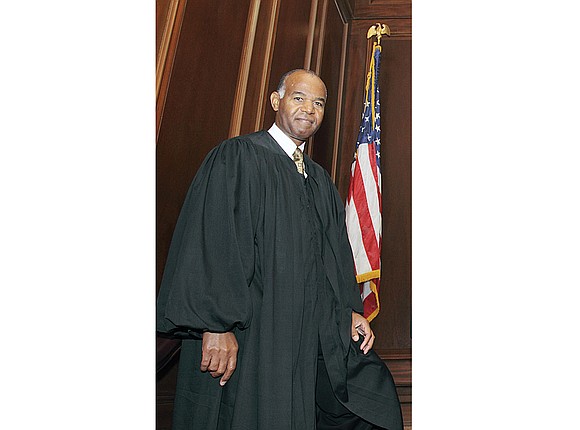4th Circuit renders decision in battle over Md. cross
Jeremy M. Lazarus | 10/27/2017, 6:23 a.m.
For 92 years, a four-story-tall cross has stood at a major intersection in Prince George’s County, Md., paying silent tribute to members of the American military who died fighting in World War I.
Now, in the latest church-state battle over public memorials, a three-judge panel of the 4th U.S. Circuit Court of Appeals in Richmond has ruled that the massive memorial violates the U.S. Constitution’s ban on the government imposition of a religious faith.
In a 2-1 ruling in which Chief Judge Roger L. Gregory issued a strong dissent, the panel ruled that the towering memorial that is maintained with public funds and stands on public property “has the primary effect of endorsing religion and excessively entangles the government in religion.”
For now, the cross will remain in place.
Dismayed supporters are vowing to appeal to the U.S. Supreme Court, which has issued mixed decisions in the past, sometimes ordering removal of public religious displays and sometimes allowing them to stand.
The case was reviewed by the 4th Circuit panel after U.S. District Court Judge Deborah K. Chasanow of Maryland rejected the challenge to the memorial from the American Humanist Association.
The association, which represents atheists and others who reject religion, sought to have the cross removed or the cross arms removed on the grounds that the memorial violated the Constitution’s First Amendment ban on government efforts to promote one religion over others.
The appellate panel had to decide whether the Latin-cross shape of the memorial served to endorse one faith, and in its opinion found it did so
Rising 40 feet from the ground, the memorial stands at U.S. 1 and Maryland Route 450 in Prince George’s County. The American Legion, with the help of families of service members who died in World War I, built it in 1925 to honor 49 residents of the county who were killed during the conflict that ended Nov. 11, 1918.
The Maryland-National Capital Park and Planning Commission owns the land and monument and has spent about $217,000 to maintain and repair the cross and renovate the site into a small park honoring veterans of other wars.
The cross dominates the site. It lists the names of the honorees and is inscribed with a quote from President Woodrow Wilson and the words “valor, endurance, courage and devotion.”
Despite the nonreligious elements, Judge Stephanie Thacker wrote in the Oct. 25 opinion that the religious “elements easily overwhelm the secular ones.”
“The cross is by far the most prominent monument in the area, conspicuously displayed at a busy intersection,” she continued in the opinion that Judge James A. Wynn Jr. of North Carolina supported.
Judge Gregory argued in his dissent that the First Amendment does not require the government to “‘purge from the public sphere any reference to religion.”
He wrote that the majority “ignores certain elements of the memorial” that do not promote religion and criticized the majority for confusing “maintenance of a highway median and monument in a state park with excessive religious entanglement.”
He also called it significant that the monument had been on public property for 50 years without a constitutional challenge.
Judge Thacker disagreed about the importance of the lengthy period of time. “Perhaps the longer a violation persists, the greater the affront to those offended,” she wrote.
Judge Gregory paraphrased the Gettysburg Address in closing his dissent. “I cannot agree that a monument so conceived and dedicated and that bears such witness violates the letter or spirit of the very Constitution these heroes died to defend.”
Kelly Shackelford, president of the nonprofit First Liberty Institute that assisted the American Legion in defending the cross, described the court’s decision as “outrageous” and wrote in a statement that it “sets a dangerous precedent and threatens the removal of memorials across the country.”
“We’re certainly not going to stop here,” he stated. “If this is the law, everything else is in danger.”








